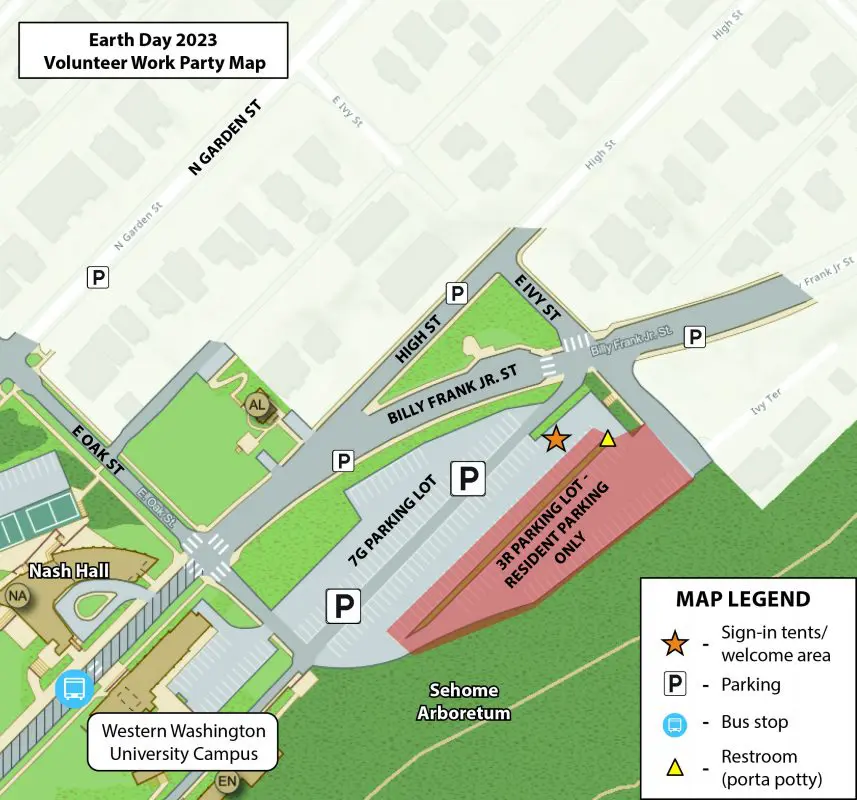
- This event has passed.
Earth Day Community Work Party at Sehome Arboretum
Apr 22, 2023 , 9:00 am – 12:00 pm
Join the more than 1 billion people worldwide who celebrate Earth Day by joining the City of Bellingham, WWU LEAD, Whatcom Million Trees Project, and Washington Trails Association for a volunteer work party. Together, we will restore habitat in the Sehome Arboretum by planting native trees, removing invasive species, spreading mulch, and more.
Event Details
When and where is the event? This event will take place on Saturday, April 22 from 9 a.m. to noon in and near the Sehome Arboretum. We will meet in the Western Washington University (WWU) parking lot located near the intersection of Billy Frank Jr. Street and East Ivy Street. Learn more below.
What will we be doing? We will remove invasive species such as English Ivy, Himalayan Blackberry, and Clematis in the area. Using the Miyawaki Method, we will plant a variety of native trees in an ecologically degraded area. Hannah Lewis – author of a book about the Miyawaki Method – will join for the work party and will give a brief talk after the event. She is also presenting about the Miyawaki Method at WWU on Thursday, April 20. The talk is free and open to the public.
Who can participate? All ages and abilities are welcome at this event. No previous volunteer experience is required. Please contact us at pkvolunteers@cob.org if you would like to request an accommodation or language interpretation.
What should I bring? We provide tools, gloves, snacks, and free coffee and pizza donated by Woods Coffee and Papa Johns. Please bring closed-toe shoes, weather-appropriate clothing, and a water bottle.
How do I sign up? Spots are limited. Please register for this event in advance.
Location
Directions: Please meet at the tents set up in WWU’s 7G Parking Lot at the North end of campus near the intersection of Billy Frank Jr. Street and East Ivy Street. There is limited parking available in the 7G Parking Lot, which will be free for the event. Please do not park in any spots labeled 3R as these are reserved for WWU residents. There is additional street parking located on nearby streets including Billy Frank Jr. Street, High Street, and N. Garden Street.
Travel by bus: There are bus stops along High Street and Billy Frank Jr. Street that are within walking distance of the work party site. Find your bus route using the online trip planner at ridewta.com.
Travel by bike: There are bike lanes along Billy Frank Jr. Street leading to the site. Find your bike route at cob.org/bike or on GoogleMaps. Let’s Bike Bellingham is offering a free bike valet service at the event!
More Earth Week Events
- If you can’t make it to the 9 a.m. event, WWU LEAD is hosting an additional work party at Sehome Arboretum from 1 p.m. to 3 p.m. on the same day. Register here for the afternoon event.
- The City is hosting several events during the week leading up to Earth Day 2023. Find a full list of events.
Contact
Phone: (360) 778-7105
Email: pkvolunteers@cob.org

